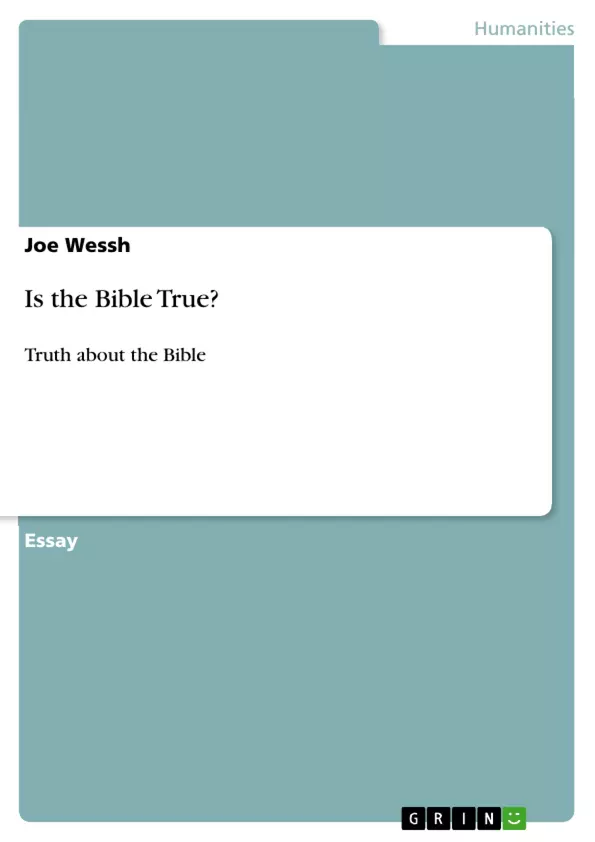The Bible remains one of the most controversial books in history. It is one of the books that has had more said about it, either good or bad. The Bible encompasses many styles of writing such as fiction, description, prophecy, poetry, law and history. In fact, it is regarded as the foundation of Christianity in that it comprises God's holy word. However, some people strongly criticize the Bible as textually false, historically unreliable, scientifically wrong and ethically regressive. Most of the individuals who grew up accepting the Bible as factual reaches a point where they ask questions about it, doubt its teaching and even reject it. Until now, there has been a wide range of evidence in support of and against the reliability of the Bible.
Table of Contents
- Is the Bible True?
- What is the Bible?
- Is the Bible True?
- Uniqueness of the Bible
- Historical Accuracy of the Bible
- Fulfillment of Prophecies
Objectives and Key Themes
This paper aims to argue that the Bible is true and reliable, despite its controversial nature. It examines the Bible's historical accuracy, the fulfillment of its prophecies, and its unique characteristics. The paper explores the arguments for and against the Bible's trustworthiness, ultimately advocating for its truthfulness.
- The Bible's historical accuracy
- The fulfillment of prophecies in the Bible
- The unique nature and characteristics of the Bible
- The Bible as a source of spiritual and intellectual fulfillment
- The reliability and truthfulness of the Bible
Chapter Summaries
- The first chapter introduces the topic of the Bible's truthfulness, outlining its historical context and significance. It discusses the various styles of writing found within the Bible, as well as the criticisms it has faced. The chapter concludes by introducing the argument that the Bible is a true and reliable source of information.
- The second chapter defines what the Bible is, exploring its compilation, diverse authors, and varying writing styles. It highlights the Bible's teaching on forgiveness, salvation, and the life of Jesus Christ. The chapter acknowledges the different interpretations and perceptions of the Bible, emphasizing its importance as a source of historical, spiritual, and moral guidance.
- The third chapter delves into the arguments for the Bible's truthfulness. It examines the Bible's uniqueness in terms of its writing, organization, translation, and preservation. The chapter also discusses the historical accuracy of the Bible, citing archaeological evidence and the discovery of scrolls. Additionally, it explores the fulfillment of prophecies found in the Bible, using examples from the Old and New Testaments.
Keywords
The main keywords and focus topics of the text include the Bible's truthfulness, historical accuracy, fulfillment of prophecies, unique characteristics, and reliability. It explores themes like the importance of divine inspiration, the nature of faith, and the role of archaeology in verifying historical accounts. Additionally, it touches upon the concepts of salvation, forgiveness, and the life of Jesus Christ.
- Quote paper
- Joe Wessh (Author), 2019, Is the Bible True?, Munich, GRIN Verlag, https://www.grin.com/document/493821



